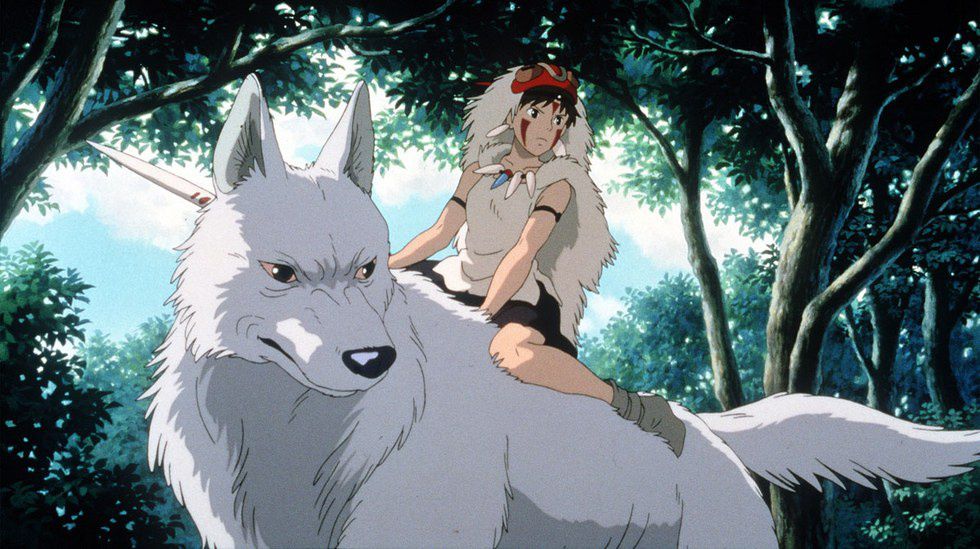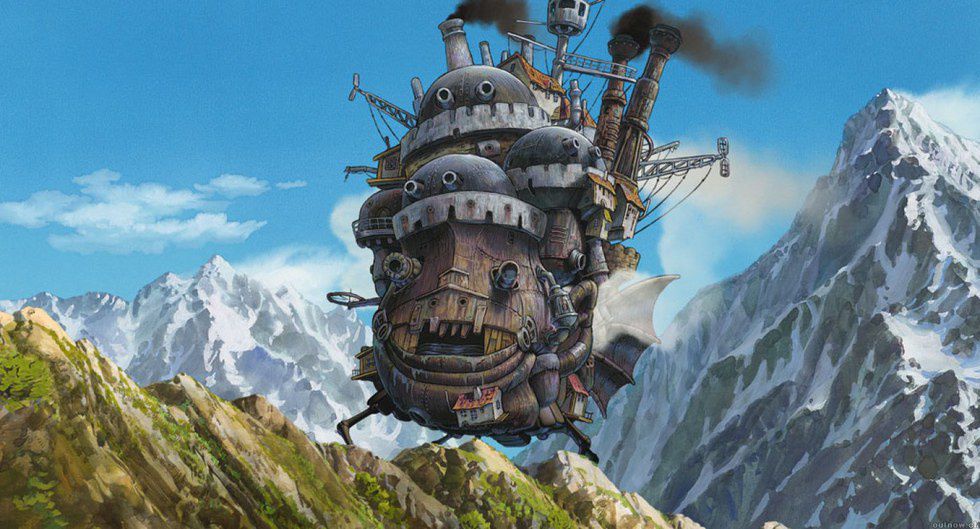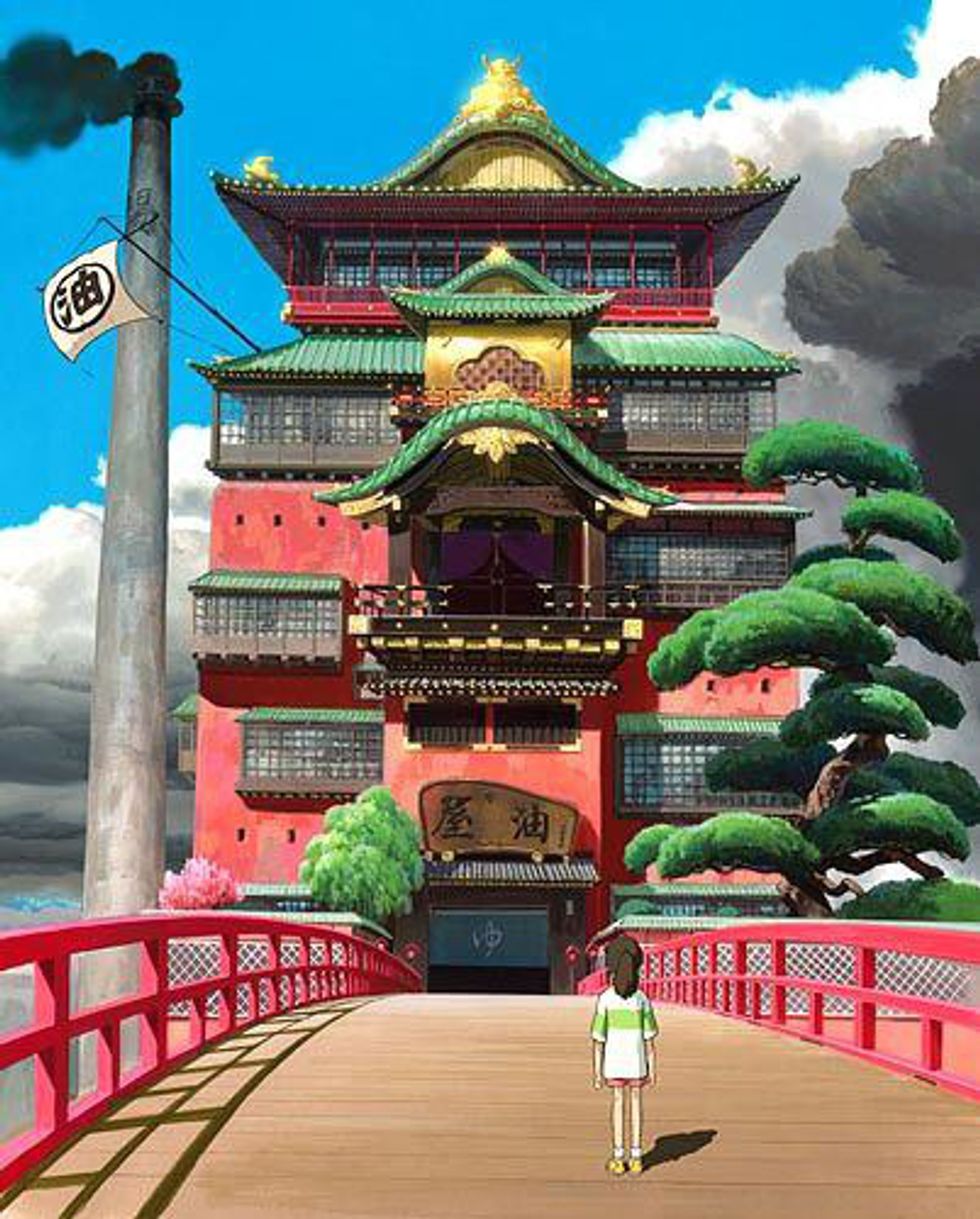Anyone who knows me even slightly well knows of my affinity—no, my obsession—with Studio Ghibli films. From action-packed "Princess Mononoke"to whimsical "My Neighbor Totoro,"every single Studio Ghibli film I have seen is a true masterpiece, woven with childish whim and artistic animations, spun with symbolism and character development, and crafted with heavy, heart-wrenching strokes of conflict and redemption. These are no ordinary animated films.
1. "Princess Mononoke"
Summary: "Princess Mononoke" chronicles the story of Ashitaka, a young prince from a small and isolated clan, that is cursed after protecting his village from a boar demon god. He is sent on a journey to the forests of the west to learn to "see with eyes unclouded by hate", which is no guaranteed cure but his only hope for recovery. This film narrates the tumultuous story of raging war between the forest gods, led by wolf-girl Princess Mononoke, and the people of a developing iron town.
The characters in this film are so incredibly developed, most noticeably because there are no defined protagonists or antagonists. Lady Eboshi, the leader of the iron town, is an empowering female who took in lepers and former prostitutes to help her develop rifles and melt down iron. However, in order to mine all the needed iron, she commanded for forests to be torn down and forest gods to be killed, seeking to hunt down the forest spirit in particular. The forest gods (depicted as massive, powerful animals), on the other hand, want to protect the forest and are willing to organize and wage war against the humans at any cost. In essence, this movie perfectly captures the highly relevant issue of the battle between preservation and development.
2. "Howl's Moving Castle"
Summary: Sophie, a young, unconfident hatter, is cursed by the Witch of the Waste when she unwittingly captures the attention of the attractive and powerful wizard Howl. Cursed with an old body, Sophie runs away from home and accidently finds sanctuary in "Howl's Moving Castle," a legged and mobile heap of bits and pieces that moves with the power of fire demon Calcifer. Meanwhile, Howl is informed that Madame Suliman, his former mentor and teacher, demands that he lends his wizardry to war efforts between Sophie's country and a neighboring kingdom. Both characters must overcome their insecurities in order to be successful in their endeavors.
Apart from how complex these characters are, and how potent the themes are in regard to how people perceive themselves and how the most crippling curses may be self developed from insecurity and self-doubt, the details in this movie are what make it truly magical. I've watched this movie at least a dozen times and every watch brings up a new detail that explains what's going on with the war, the magical portal doors, Sophie's family situation, Howl's history, and more. I'd strongly advise first-time watchers of this film to simply absorb the beauty of the film the first time around, the details in the animation and the movement of each character and frame of scenery, and then watch it another few times to listen to the dialogue of the people speaking in the background and piece together the complexity of the film.
3. "Spirited Away"
Summary: On the way to their new house, Chihiro and her parents stop at what looks like an abandoned theme park to explore. Her parents see an abandoned restaurant with plates of steaming, delicious food and stop and eat, promising to pay once someone returns to take their money. Chihiro ventures off to explore and finds a giant bathhouse. As evening rolls into dusk, she meets Haku, a young boy who insists she must get out of there before it turns dusk. She runs back to where her parents were, only to find that they have been turned into pigs, and that this is a place for spirits. In an effort to save her parents, Chihiro is whisked into a world of spirits and witches, dragons and spells, and friends she never thought she'd make and could never bear to leave.
Even thinking about this movie gives me heart palpitations. Chihiro starts as a bratty, whiny kid—I had a very hard time feeling any sympathy for her, especially when she whimpered and whined when there were clearly more pressing issues (like saving her pig parents, for example). However, with the guidance of Haku, Chihiro became a powerful and strong-willed girl. Most importantly, there was never a moment when Chihiro suddenly pulled out a superhero cape and was instantaneously able to solve her problems on her own. Her progression as a character was gradual, realistic, and moving. Furthermore, this movie was full of equally as complex characters, all of which held an instrumental role in creating the fast-paced, complex, magical, and engaging spirit world. The ending was beautifully constructed: not happy, not sad, but a bittersweet transience that left me completely breathless, fully satisfied, yet yearning for more.
I love all of Studio Ghibli's films. There is always one for any occasion: "My Neighbor Totoro"for when you're sick and wanting a relaxing, cheerful, and whimsical watch, "Kiki's Delivery Service" for a chipper coming-of-age story, "Nausicaa Valley of the Wind" when you're hoping to be whisked into a completely different apocalyptic world. But these three movies-- they are completely and absolutely enlightening.













 The minimum wage is not a living wage.
StableDiffusion
The minimum wage is not a living wage.
StableDiffusion
 influential nations
StableDiffusion
influential nations
StableDiffusion









